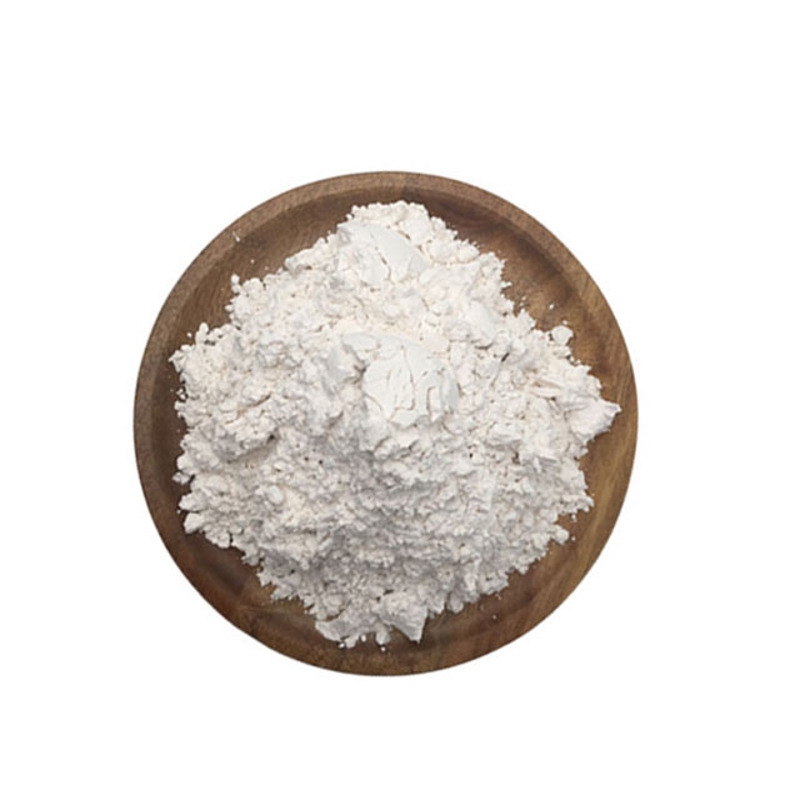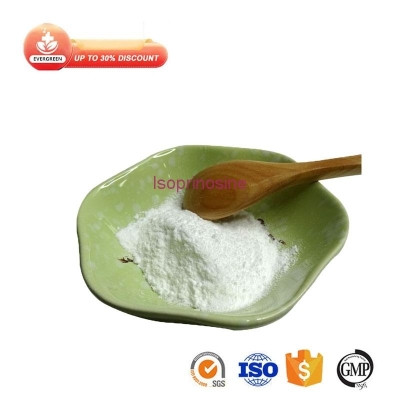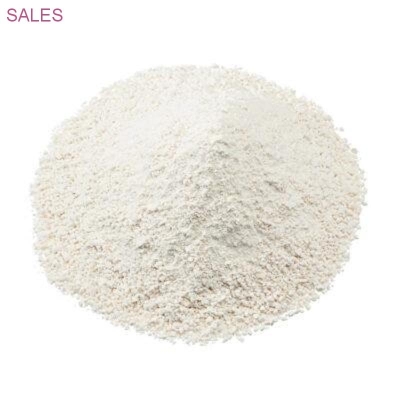-
Categories
-
Pharmaceutical Intermediates
-
Active Pharmaceutical Ingredients
-
Food Additives
- Industrial Coatings
- Agrochemicals
- Dyes and Pigments
- Surfactant
- Flavors and Fragrances
- Chemical Reagents
- Catalyst and Auxiliary
- Natural Products
- Inorganic Chemistry
-
Organic Chemistry
-
Biochemical Engineering
- Analytical Chemistry
- Cosmetic Ingredient
-
Pharmaceutical Intermediates
Promotion
ECHEMI Mall
Wholesale
Weekly Price
Exhibition
News
-
Trade Service
Introduction Following the 2017 edition, after 4 years, the 2021 edition of the World Allergy Organization/European Association for Allergy and Clinical Immunology (WAO/EAACI) management guidelines for hereditary angioedema (HAE) has been released recently
.
Based on the latest evidence and expert clinical experience, the 2021 version of the guideline has a total of 28 recommendations.
Compared with the previous version, 7 are newly added, 13 are revised, and 8 are unadjusted
.
In order to allow more doctors to quickly understand the latest progress in the diagnosis and treatment of HAE by WAO/EAACI, the main points of the update and revision of the guideline are analyzed 1,2
.
The update points of the HAE diagnosis section revise the conditions for repeated HAE detection to be the same as the 2017 version of the guidelines.
The 2021 version of the guidelines also recommends the detection of C1-INH function, C1-INH protein and C4 in all patients with suspected HAE
.
However, the conditions for repeated testing were revised from "repeated testing when any one of C1-INH function, C1-INH protein and C4 levels is abnormally low" to "repeated testing is required to confirm the diagnosis of HAE when the patient's test result is positive"
.
Repeat testing is best performed in an accredited laboratory
.
The same should be true for results that are inconsistent or contradict the phenotype
.
Many laboratories rarely test for C1-INH, which can lead to false-positive or false-negative results, and repeat testing reduces this risk
.
Newly added for patients with suspected HAE and normal C1-INH level and function, it is recommended to evaluate the known mutation of HAE-nC1-INH.
Among the laboratory tests, HAE with normal C1-INH can currently only be diagnosed by genetic testing
.
Therefore, genetic testing should be performed for patients with normal C1-INH level and function but suspected of HAE
.
HAE on-demand treatment update points continue to recommend that on-demand treatment be considered as early as possible in any episode of edema; mandating on-demand treatment when an episode of edema may affect or potentially affect the upper airway On-demand therapy minimizes these effects
.
Laryngeal edema episodes should be treated as emergency treatment, and early tracheal intubation or airway surgery should be considered for advanced upper airway edema
.
Drugs such as C1-INH and icatibant are recommended for on-demand treatment.
As in the 2017 version, the 2021 version of the guideline continues to recommend drugs such as C1-INH and icatibant
.
But in recommending C1-INH, the 2021 guideline emphasizes that only intravenous C1-INH is effective for on-demand therapy
.
Icitibant is a competitive antagonist selective for bradykinin B2 receptors, preventing the binding of bradykinin to its B2 receptors for the treatment of patients with acute exacerbation of HAE
.
Continue to recommend that patients have sufficient on-demand treatment drugs, but the amount of drugs has been revised from "meeting the past 2 episodes" to "meeting at least 2 episodes", and the need for treatment drug reserve requirements to increase HAE short-term prevention and treatment update points to carry out Conditions for short-term prophylaxis revised to be more specific The 2017 guideline recommends “short-term prophylaxis prior to surgery that may induce seizures,” and the 2021 revision is revised to “drugs, surgical or dental procedures, and exposure to other conditions that induce angioedema flares.
” Short-term preventive treatment before treatment”, the recommendation is more clear
.
New recommendation: use of intravenous pdC1-INH as first-line drug for short-term preventive therapy The previous guidelines did not recommend first-line drugs for short-term preventive therapy.
The 2021 edition adds a first-line drug recommendation and clarifies that fresh frozen plasma (containing C1-INH) can also be used for Short-term prophylaxis, but should be used as second-line due to safety concerns
.
In the past, androgens are often used for preoperative prophylaxis, but frequent use can cause side effects
.
New recommendations for the update of long-term preventive treatment of HAE: The goal of HAE treatment is to control the disease as a whole and normalize the life of patients.
Currently, the goal of HAE treatment can only be achieved through long-term preventive treatment, that is, regular use of drugs to prevent disease attacks and reduce disease burden
.
It emphasized the importance of long-term preventive treatment in the clinical treatment of HAE
.
Revise the considerations for long-term preventive assessment, adding "disease activity, disease control" to "disease burden, patient preference"
.
It is suggested that in the clinical evaluation, more factors should be considered.
Long-term preventive treatment should be individualized, and comprehensive consideration should be given to the patient's disease activity, the patient's quality of life, and the availability of medical resources
.
Therefore, it is recommended that patients be assessed at each follow-up visit, these factors can vary over time, and patients should be assessed at least annually
.
Patients may develop upper airway edema or other edema during long-term prophylaxis, so on-demand medication should be available during long-term prophylaxis
.
New first-line drugs for long-term preventive treatment The previous guidelines only recommended C1-INH as first-line treatment
.
Ranalimumab is a subcutaneously injectable, fully humanized monoclonal antibody (IgG1/K-light chain)
.
The recommended dose is 300 mg administered every 2 weeks
.
If the patient is well controlled (eg, seizure free), this can be reduced to 300 mg every 4 weeks
.
Revise the recommendation for weakening androgen, emphasizing that it can only be used as a second-line drug for long-term preventive treatment, and reducing the status of androgen in long-term preventive treatment The previous guidelines recommended androgen as a second-line drug for long-term preventive treatment, and the 2021 version clearly stated: androgen It can only be used as a second-line drug for long-term preventive treatment
.
Androgenic side effects are more, such as: masculinizing women, menstrual disorders and so on
.
It can also masculinize the female fetus and is strictly prohibited during pregnancy
.
In children and adolescents, it can interfere with normal growth and development
.
In addition, it interacts with many drugs and requires strict monitoring and management during use
.
Other Update Points For the treatment of edema episodes in children under 12 years of age, it is recommended to add icatibant to C1-INH.
C1-INH and icatibant are currently approved on-demand treatment of HAE in children.
The two drugs have Good efficacy, tolerability, and safety New recommendation: recommend patients to manage HAE under the care of a professional doctor and encourage patients to be treated under the guidance of a professional doctor
.
At present, patients face many obstacles to obtain the best treatment, such as delayed diagnosis, lack of HAE knowledge and experience of doctors, and lack of effective communication.
Professional HAE doctors can help overcome these obstacles
.
When possible, treatment should be provided by a comprehensive angioedema center with expertise
.
Conclusion With the deepening of the understanding of HAE diseases and the accumulation of more clinical research data, there will be more new discoveries and new cognitions in the future, which will make the management of HAE more standardized
.
Reference 1.
M Maurer, et al.
Allergy.
2018 Aug;73(8):1575-1596.
2.
Marcus Maurer, et al.
Allergy.
2022 Jan 10.
Approval number: VV-MEDMAT-64378 Approval date: 3/17 /2022Expires: 3/16/2024 Disclaimer: This information is intended to help healthcare professionals better understand the latest developments in related disease areas
.
The content of the information published on this platform does not mean that we agree with its description and views, but only provides more information.
.
If copyright issues are involved, please contact us, and we will deal with it as soon as possible
.
For informational use by healthcare professionals only
.
Such information is not intended to replace professional medical advice in any way and should not be considered medical advice
.
If such information is used for purposes other than information understanding, the Platform and Takeda shall not be held responsible
.
Finish







